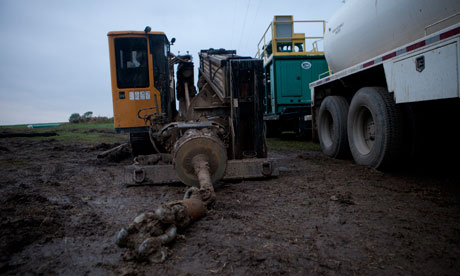That blaring noise you can hear could be the sound of the UK missing the boat. A succession of crises over more than a decade revealed the UK’s dependence on fossil fuels, increasingly imported, to be both perilous and expensive. The fuel protests of 2000 showed the interconnected vulnerability of our food and fuel systems, while the oil price spike of 2008 revealed the economy as hostage to volatile market.You’d think then, that if only as an exercise in prudent government – forget about climate change for a moment – aggressive energy diversification into abundant, domestic renewable sources would be a good idea.
Yet, if anything, flip-flopping on feed-in tariffs and scaldingly negative remarks from the chancellor, George Osborne, and others have, wilfully or not, undermined a whole UK industrial sector just as it could be growing, creating jobs and being a world leader.
Renewables are, according to the International Energy Agency, now the fastest growing global energy sector, set to beat gas and generate double the supply from nuclear power by 2016.
You might think that any government would look at a market like that, which can only get bigger (while oil, for example, by definition can only do the opposite), and want a big slice.
Why, then, would the Treasury go out of its way to remain in ignorance of both the problem and the opportunity represented by climate change and the challenge of resource depletion? In March it was revealed that the most powerful department in government had its head shoved firmly in the sand.
via End this love for dirty fuels | Environment | theguardian.com.
End this love for dirty fuels

No comments:
Post a Comment